Crusader Kings 3's best feature is that you can get so stressed out you die
And it's a system other RPGs could benefit from.
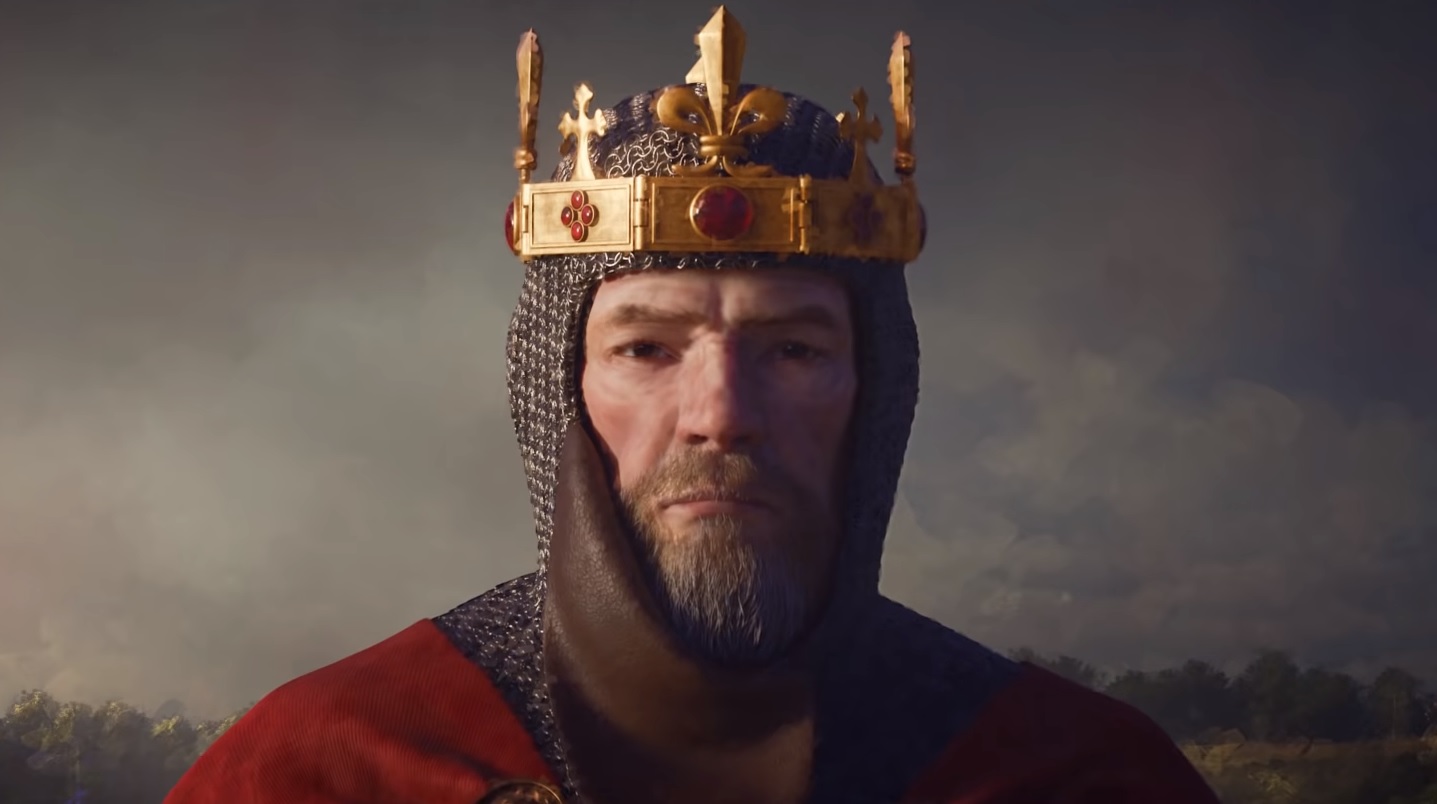
Crusader Kings 3 can be a bit too real. It's a game where you can forge empires and build your own religion, but all your plans can be unravelled because you got too stressed, too sad and then died. It's bleak. It's also Crusader Kings 3's smartest feature, which is why I find myself somehow advocating for more stress.
Nothing exists in a vacuum in CK3, so stress affects a lot of different systems and is, in turn, affected by plenty of external factors. It ends up serving a lot of different purposes. Broadly, it's meant to just represent the pressures of being a ruler and a person. Random events, often entirely mundane, take an emotional toll, making life harder in various ways.
This isn't just a passive system that throws unavoidable misfortunes at you, though. One of the quickest ways to have a stress-induced breakdown is by acting in ways that conflict with your personality. Every character has defining personality traits, so if you're playing a just person and you decide to start plotting your spouse's murder, that's going to stress you out.
It starts to creep up the meter, and then all it will take is a tiny bit of bad news to send you over the edge. Once you're stressed your health takes a hit, and you run the risk of breakdowns. The more stressed you are, the worse the breakdowns get.
In my Crusader Kings 3 review, I sadly recounted how thinking about how much I missed my best friend sent me spiraling into a depression, and then alcoholism, and finally death. CK3 is full of these tragedies. Hitting the bottle and other coping mechanisms can reduce stress, but then they create more lasting issues. Sure, self-flagellation might cheer you up for a little while, but eventually all of those horrible wounds are going to really start to sting.
Because CK3's dynasties are kingdoms are only as stable as their rulers, avoiding being overcome with stress is just as vital as avoiding being stabbed. It encourages roleplaying without actually stopping you from doing whatever you want—you're just going to have to deal with the consequences.
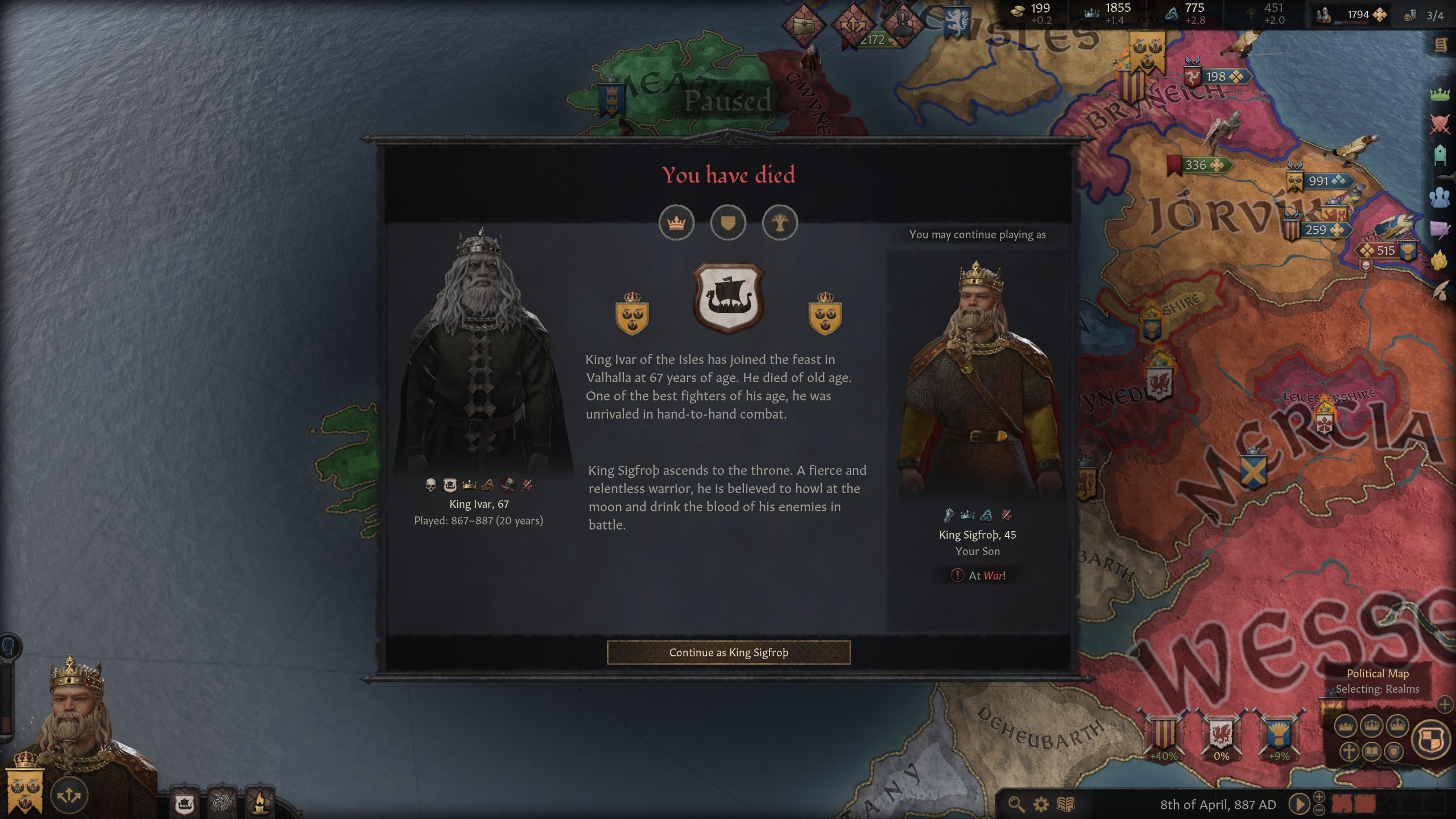
RPGs don't normally bat an eyelid if you do something radically out of character. You can make whatever choice you want, and the results will usually be the same whether you've spent the rest of the game as a virtuous knight or an unrepentant villain. Everything will just be tallied up and averaged out. If you can sculpt a character over 100 hours and then ditch their personality in an instant, it threatens to shatter the illusion that growth and choice actually matter.
The biggest gaming news, reviews and hardware deals
Keep up to date with the most important stories and the best deals, as picked by the PC Gamer team.
There are some exceptions, including predefined characters like Geralt who have set personalities, and to a lesser degree Dragon Age 2, which learns from your choices and then tries to capture your personality even when you aren't picking dialogue options. Geralt and Hawke's traits are more firmly etched into them.
In CK3, you get all the benefits of a sandbox, so you're free to go off in wild directions and take your ruler on some very unusual journeys, but you've got to actually think about the kind of person you're roleplaying, creating this cohesive narrative even when things are at their weirdest.
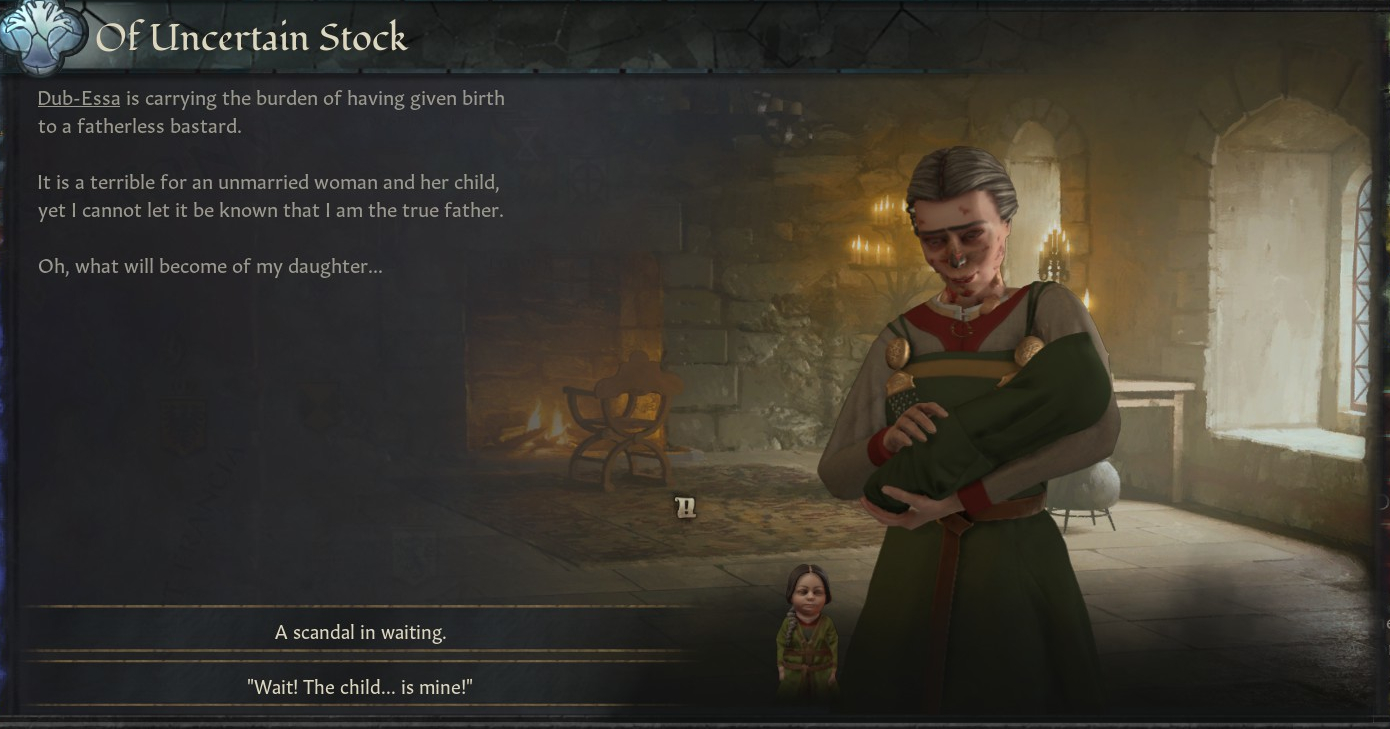
You can chart the decisions you make and the mark they leave on you and your dynasty and everything just links up. Your personality and traits are both the roots and end results of all of these actions, informing them and then developing because of them. There's a logic, albeit often a strange one, to everything, like you've got a DM ensuring everything makes sense and keeping you on track, or at least suggesting that there's a track you might want to follow.
Stress is also a great way to motivate players to get stuck into different parts of the game. One of the series' biggest obstacles is that it's pretty hard to know where to begin. You've got your council to sort out, maybe a spouse to find, vassals to get to know, rivals gunning for you, so many possible schemes—it's a lot. Stress doesn't make any of that vanish, but it does act like a guide. When you know what kind of character you're playing and you're compelled to actually roleplay, it becomes so much easier to focus.
Importantly, it doesn't feel like a punishment any more than the intrigue system, which has killed off plenty of my rulers. It's something that's meant to be managed. The coping mechanisms you develop might introduce some other problems, but they do give you back more control. When you have a breakdown you can choose how to deal with it, giving you passive bonuses and penalties, as well as letting you go out and shed a chunk of stress by indulging in your debilitating new vice. They also impact other decisions, like drunkards being able to reduce stress when they're at a feast, so they end up just being another facet of your personality.
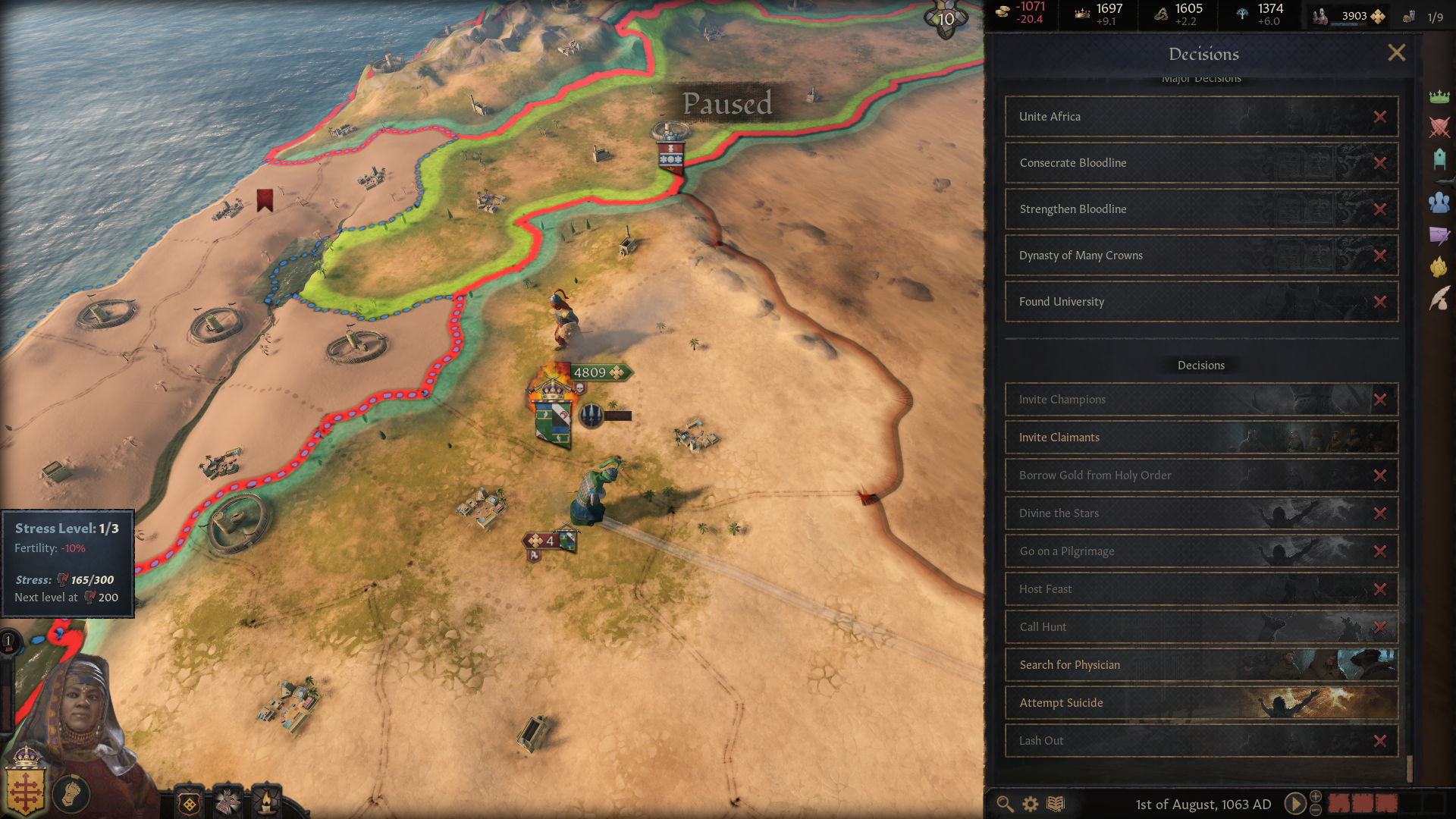
While it's a great RPG system, there's absolutely is some strategy to it. Like most of CK3, roleplaying and strategy are intertwined, so you're never really just interacting with just one element. How far do you push yourself? When is the right time to take a big hit of stress? Maybe you treat it like a challenge to overcome, or maybe your strategy is to befriend all the drunks in the land, which is easier when you yourself are a pisshead.
At its most basic level it's a reinforcement that you're playing a person rather than a nation, or a whole dynasty—the foundation of Crusader Kings. But I'm keen to see it applied elsewhere, to pure RPGs. We're always being shown how our actions affect villages, our companions or what factions like us, but I want some internal consequences and conflict. I want guilt and sadness and fatal melancholy.
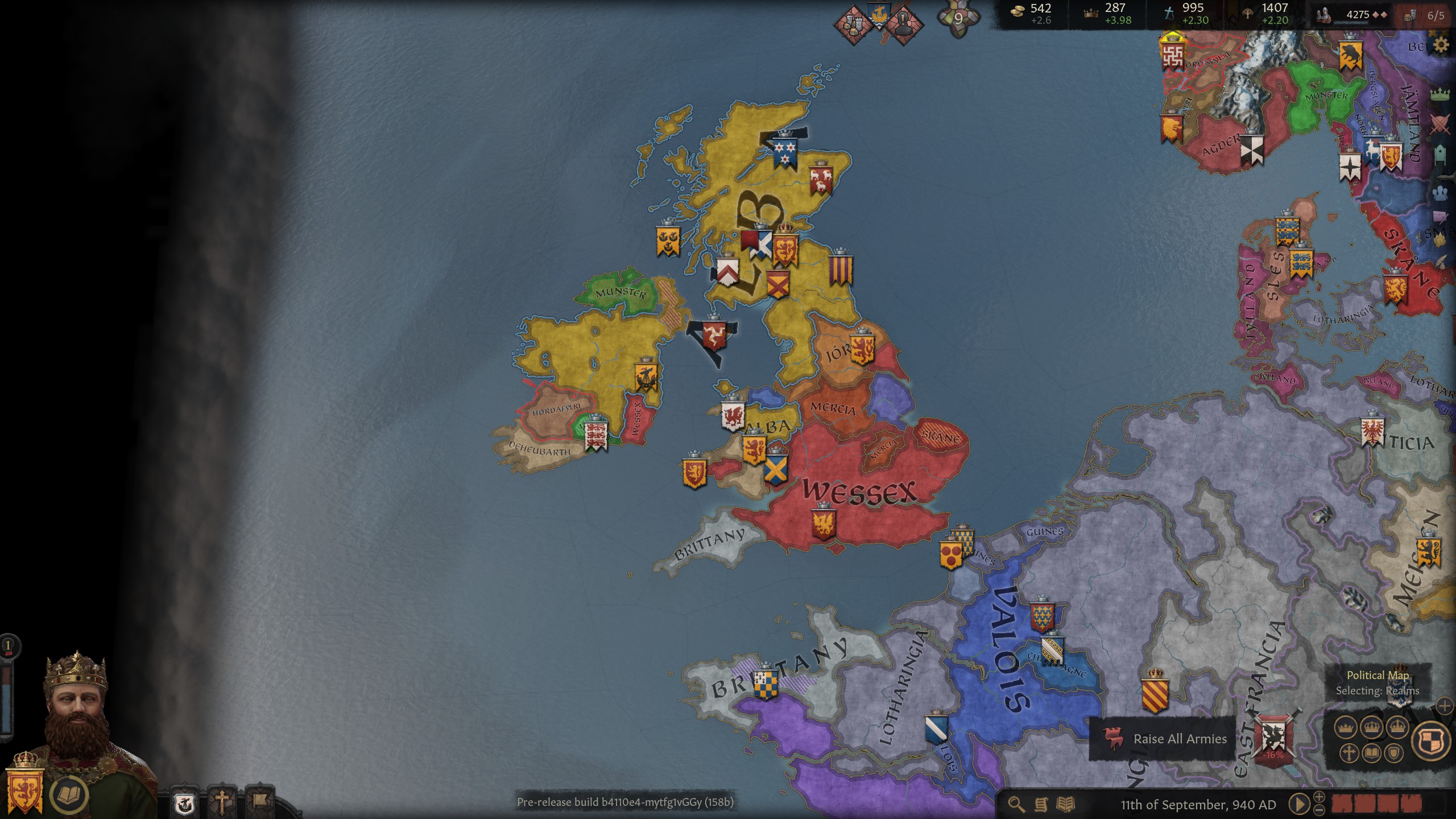
Disco Elysium, of course, is just drowning in introspection. You can die from a heart attack by failing a conversation with yourself. It models stress differently from CK3, but it still uses it to add more personal risk to your choices. It also makes skills and traits more defining features, using them to shape the detective's personality and vices. It was our 2019 Game of the Year and it's one of the best RPGs ever made, so maybe it's got some good ideas?
I mentioned it being like having a DM watching over you earlier, and tabletop roleplaying has very much been on my mind while I've been playing CK3, just as it was when I was playing Disco Elysium. In the vast majority of tabletop RPGs I've played, it's my character's motivations, eccentricities and personality that I've really cared about developing. I don't want to play some guy who's just good with swords. I put just as much thought into my CRPG characters, but there are few opportunities to actually express that in-game. That's never an issue in CK3. All of that is reflected in my character sheet, my relationships, even my appearance.
So yeah, gimme more of that stress. Pile it on. Screw that escapism and make me pause my quest to kill yet another power-crazed wizard so I can have a wee sob.

Fraser is the UK online editor and has actually met The Internet in person. With over a decade of experience, he's been around the block a few times, serving as a freelancer, news editor and prolific reviewer. Strategy games have been a 30-year-long obsession, from tiny RTSs to sprawling political sims, and he never turns down the chance to rave about Total War or Crusader Kings. He's also been known to set up shop in the latest MMO and likes to wind down with an endlessly deep, systemic RPG. These days, when he's not editing, he can usually be found writing features that are 1,000 words too long or talking about his dog.

